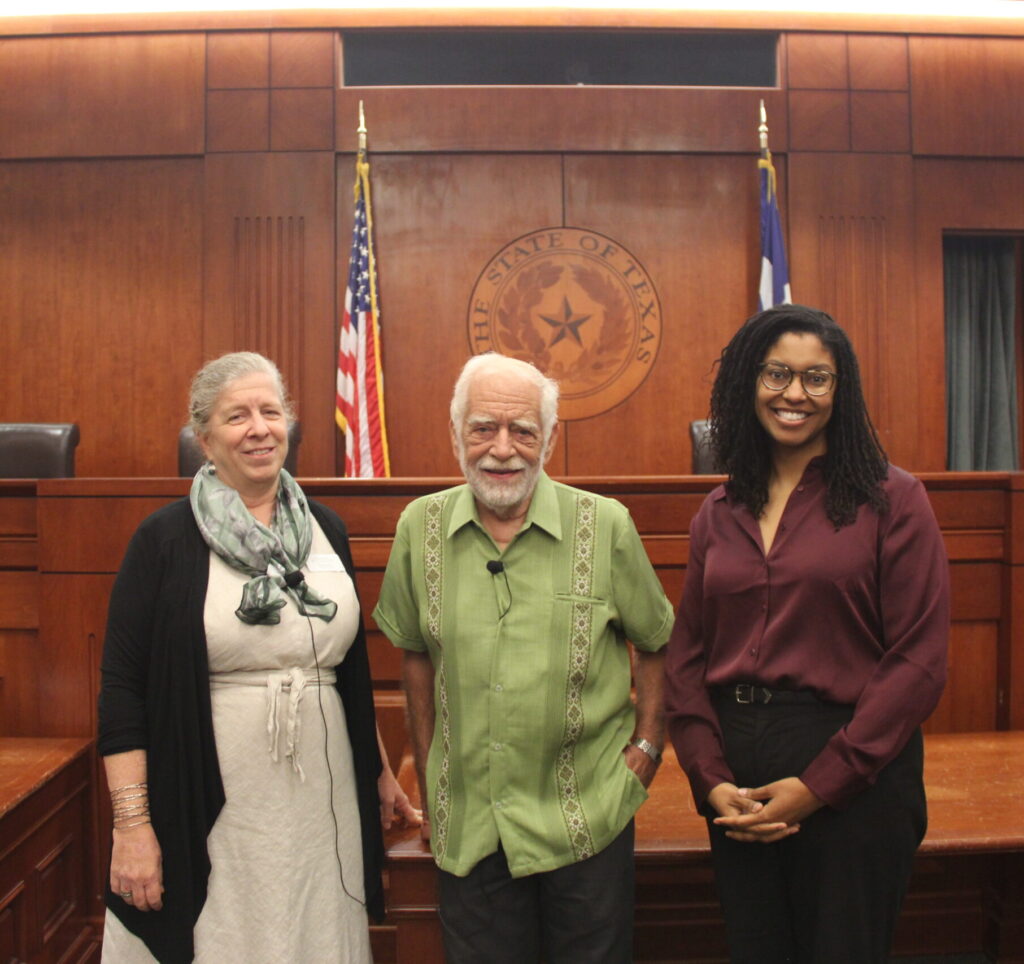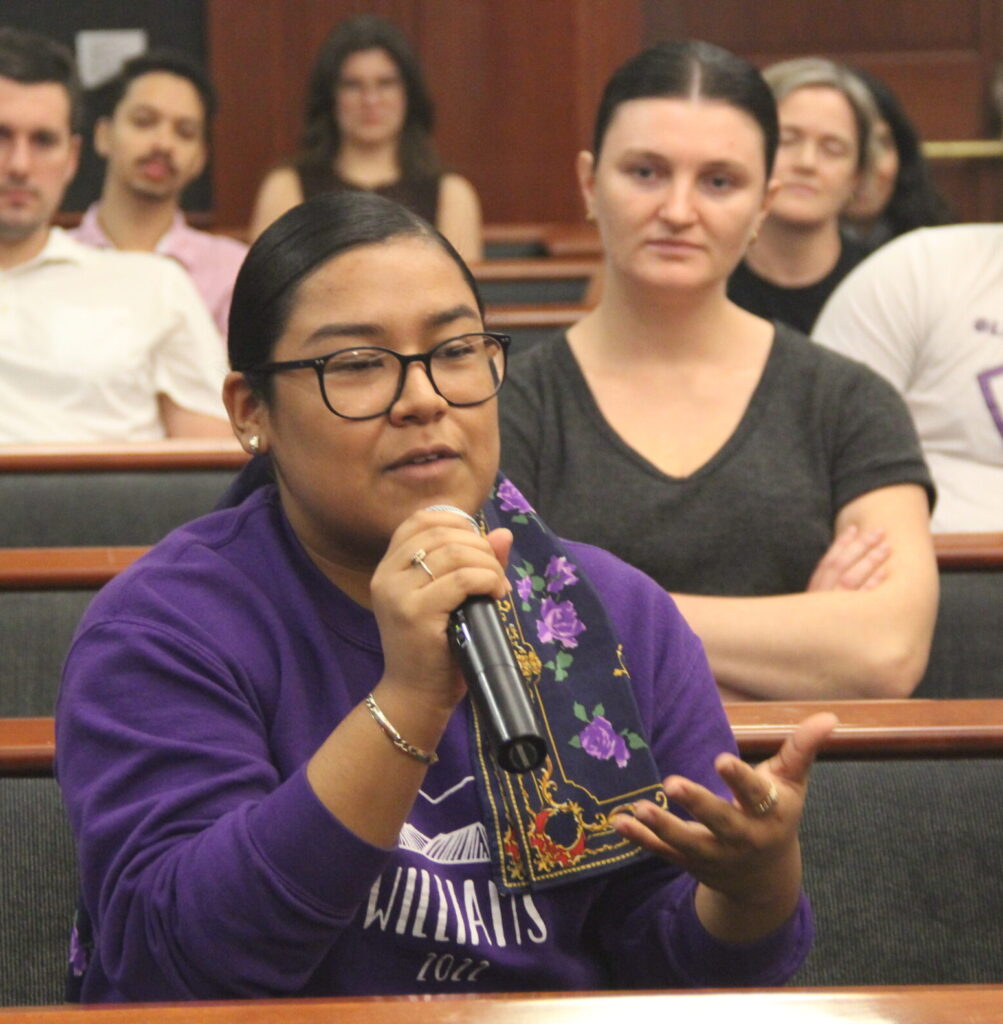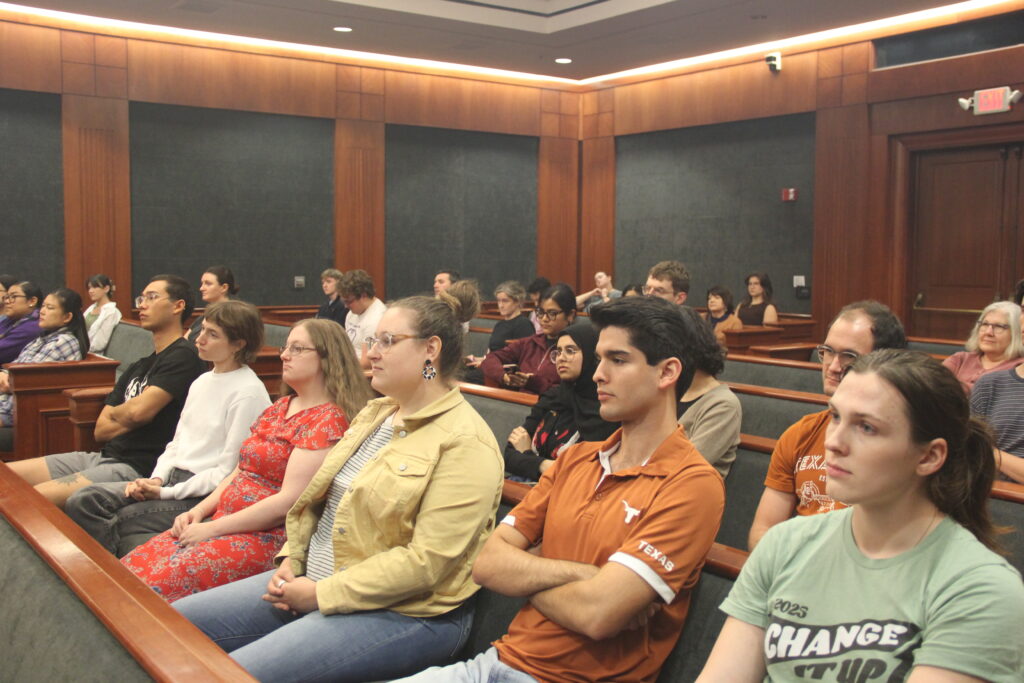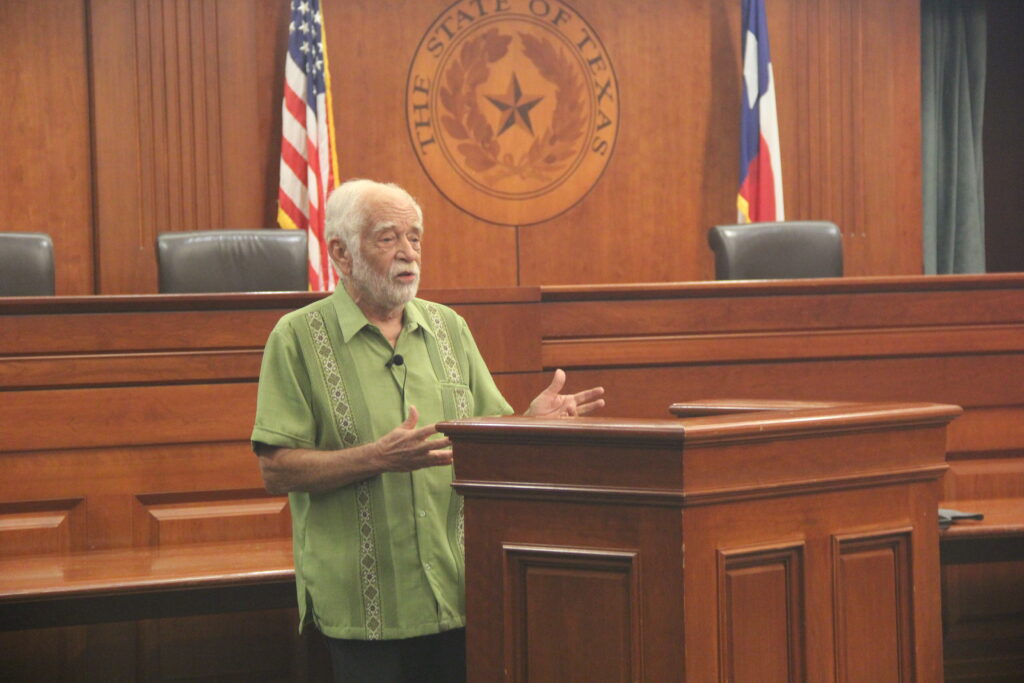
The Justice Center hosted Jim Harrington, civil rights attorney and former Texas Law adjunct professor, to speak about his new book, The Texas Civil Rights Project: How We Built a Social Justice Movement. The discussion, moderated by Professor Helen Gaebler, Senior Research Attorney in the William Wayne Justice Center for Public Interest Law, explored Harrington’s decades of advocacy for social, racial, and economic justice, and his work advancing farmworker rights in the Rio Grande Valley and across Texas. He also reflected on the founding of the Texas Civil Rights Project in 1990.
Harrington shared his journey from studying for the priesthood to becoming a lawyer dedicated to advancing justice. “One morning, I just sat up in bed and said, I need to be a lawyer,” he recalled. After completing law school and having worked previously with migrant farmworkers in Michigan, Harrington joined the South Texas Project where he advocated for protective legislation such as workers’ compensation, fair wages, and pesticide safety.
In his book, Harrington chronicles the more than 2,500 civil and human rights lawsuits in which he was involved. He credits his clients, including renowned labor organizer Cesar Chavez, for shaping his understanding of how the law can be used as a tool for justice rather than an obstacle. Throughout his career, Harrington has emphasized the importance of staying grounded in the communities one serves. When progress felt slow and challenges seemed insurmountable, he said it was the people beside him who sustained his commitment to the work. 
Addressing law students in the audience, Harrington encouraged them to stay connected to their purpose. “When pursuing this profession, it is important to know we are the people working for justice, and to step outside and get involved in the community,” he said. He reminded students that meaningful change often takes time but is always worth pursuing. “We have a duty to continue the arc-bending of many who preceded us and who lived with the hope that we would carry forward their struggle against oppression.”
“We were thrilled to be able to share with our students Jim Harrington’s remarkable career and his lasting impact on the civil rights movement in Texas,” said Professor Gaebler. “Harrington knows better than most how demanding this work can be and also how rewarding.”


